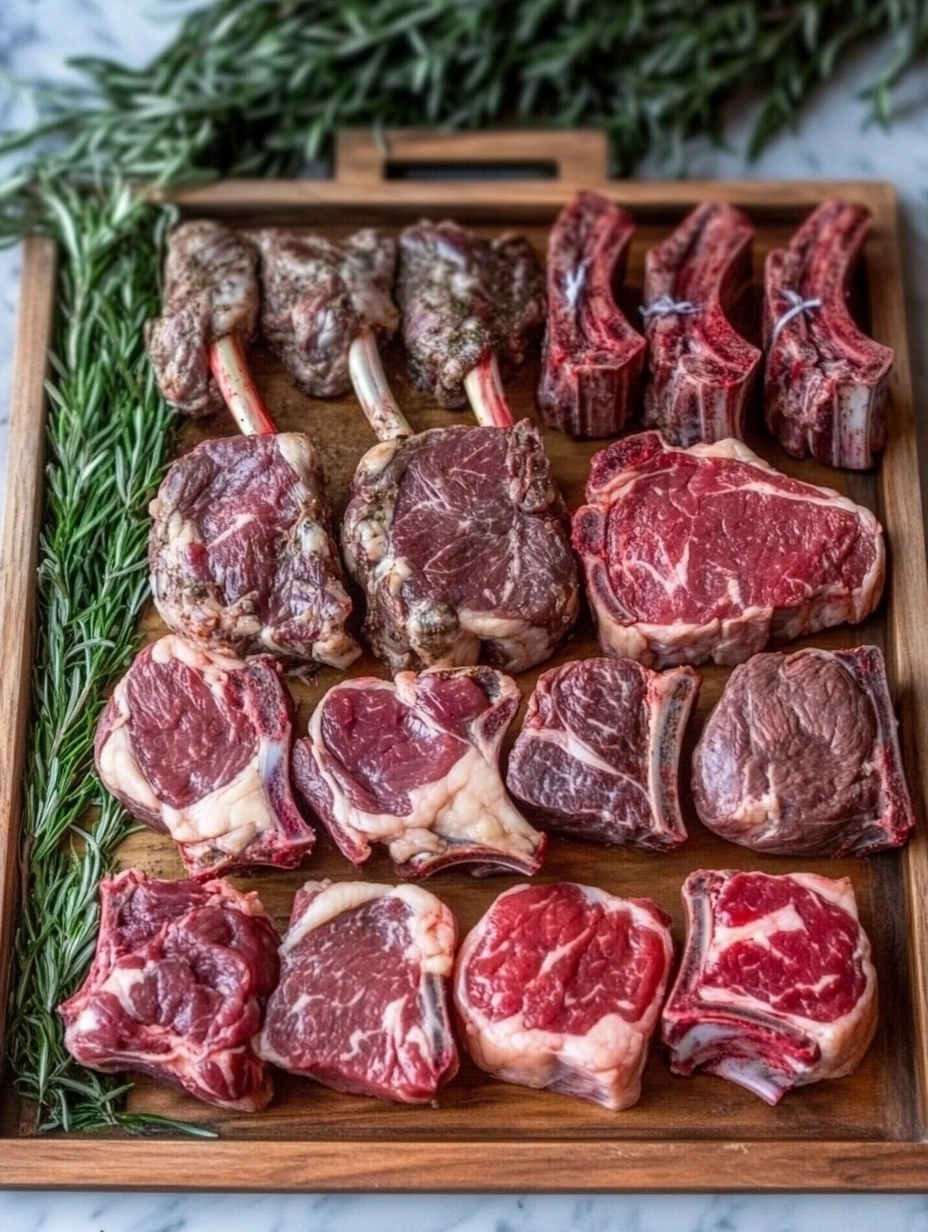Exploring the Carnivore Diet: My Personal Take on the Benefits, Drawbacks, and Modern Food Context
Introduction In the ever-changing world of health and wellness, new…
Introduction
In the ever-changing world of health and wellness, new diets seem to pop up every day, but few have sparked as much debate as the carnivore diet. On the surface, it’s simple: you eliminate plant-based foods and consume only animal-based products like meat, fish, eggs, and animal fats. Some people claim this diet has completely transformed their health—banishing inflammation, improving digestion, and even boosting mental clarity. But others view it as extreme, unsustainable, and risky.
I’ll admit, when I first heard about the carnivore diet, I was sceptical. A diet made entirely of steak, eggs, and bacon? It sounded more like a dare than a legitimate approach to nutrition. But I was curious—what was making people try such an extreme eating style? And more importantly, what could I learn from their experiences and my own research?
What Is the Carnivore Diet, Really?
The carnivore diet is exactly what it sounds like: an eating plan based entirely on animal-based foods. Unlike the ketogenic diet, which focuses on maintaining low carbohydrate intake but still allows some plant-based foods, or paleo diets that emphasize whole foods but allow fruits, vegetables, and nuts, the carnivore diet cuts everything out except for animal products.
Followers often consume beef, pork, chicken, fish, eggs, butter, and animal fats. Some even go as far as eating organ meats for additional nutrients. Advocates believe this approach can help reset the body, eliminate toxins found in plant-based foods, and simplify eating habits altogether. While the diet’s simplicity is appealing to some, it also raises questions about whether cutting out fruits, vegetables, and grains is truly healthy.
Why Some People Swear by It
Simplification
One of the carnivore diet’s biggest selling points is its simplicity. There’s no need to track macros, count calories, or cook elaborate meals. You eat when you’re hungry, and your choices are relatively straightforward. I can see the appeal—no agonizing over whether a snack fits your goals or debating between pasta or salad for dinner.
In a world where information overload makes meal planning stressful, the carnivore diet offers a break from decision fatigue. When your only decision is whether you’re having ribeye or ground beef, things start to feel refreshingly uncomplicated.
Reported Benefits
Many followers report significant health improvements, including:
- Higher energy levels: Without the insulin spikes and crashes associated with carbs, some people feel more balanced energy throughout the day.
- Improved digestion: For individuals with autoimmune or inflammatory bowel conditions, cutting out fibrous foods can reportedly reduce bloating and gastrointestinal distress.
- Clearer skin: Some proponents say their acne and skin inflammation disappeared after switching to an all-meat diet.
However, it’s essential to take a step back and ask: Are these benefits coming from the diet itself or from eliminating the processed foods that dominate modern eating habits?
The Positives of the Carnivore Diet: My Observations and Research
Gut Rest
One of the main arguments for the carnivore diet is that it allows your gut to rest by eliminating irritants commonly found in plant-based foods—particularly fibre and antinutrients. This can be a revelation for people who suffer from chronic gastrointestinal issues.
For instance, I read about a woman who struggled with debilitating IBS for years. After transitioning to the carnivore diet, her symptoms disappeared. But it’s worth noting that she was also cutting out processed snacks, sugar, and other potential culprits.
Elimination of Ultra-Processed Foods
I think this is where the real magic happens for most people. The carnivore diet is almost an automatic elimination of the ultra-processed, sugar-laden foods that make up a large portion of the typical Western diet. Fast food, sugary cereals, snack bars, sodas—all gone. Even if you’re sceptical about the merits of eating only meat, it’s hard to argue with the benefits of cutting out processed junk.
Nutrient-Dense Simplicity
Animal products, especially red meat, are nutrient-dense, meaning they pack a ton of essential vitamins and minerals in a relatively small serving. Steak, for example, is rich in iron, B vitamins, and protein—all essential for maintaining energy, muscle mass, and overall health. Some carnivore proponents even claim that animal fats provide the body with long-lasting energy and reduce the need for constant snacking.
I found it fascinating to hear from people who said their relationship with food changed for the better. Instead of obsessing over every bite, they started enjoying meals without the anxiety of fitting into a calorie or carb limit.
The Drawbacks and Concerns of Going Fully Carnivore
Nutrient Deficiency Risks
Cutting out entire food groups means you risk missing out on key nutrients—particularly vitamin C, fibre, and phytochemicals found in fruits and vegetables. For me, this was the most significant red flag. Even with organ meats, which some carnivores swear by for added nutrients, it’s hard to cover all your bases. While humans can technically survive without fibre, research shows that fibre plays an essential role in gut health.
Sustainability and Social Impact
Another concern is the monotony of the diet. How many times can you eat steak and eggs before you start dreaming of fresh berries or a crunchy salad? The lack of variety can make social gatherings tricky, too. Dinner with friends? A weekend brunch? Suddenly, your food options become incredibly limited.
Scientific Pushback
Many nutrition experts argue that plant-based foods provide crucial antioxidants and fibres that protect against disease. Studies have linked diets high in fruits, vegetables, and whole grains to lower rates of heart disease, diabetes, and cancer. Meanwhile, high levels of red meat consumption, especially processed meats, have been associated with increased health risks. These conflicting findings make it challenging to know where to stand.
Is the Carnivore Diet Effective or Just a Rebound from Poor Diets?
This is the million-dollar question. If you’re coming from a diet filled with sugary sodas, packaged snacks, and fast food, switching to any whole-food-based plan—carnivore, keto, paleo—is bound to make you feel better.
It’s like taking someone off a soda habit and giving them water: they’re going to feel healthier. The drastic improvement may have less to do with the absence of vegetables and more to do with the absence of processed junk.
Conclusion: My Perspective on the Carnivore Experiment
After diving into the world of carnivore diets, I’ve come to a few key conclusions:
- The carnivore diet offers a level of simplicity that’s attractive in today’s overwhelming food culture.
- The benefits people experience may often come from cutting out ultra-processed foods rather than the diet’s all-meat nature.
- The restrictive nature of the carnivore diet makes long-term adherence a challenge for most people.
Personally, I see the carnivore diet as a potential short-term reset for people who feel lost in a sea of conflicting nutritional advice. However, I believe that a balanced diet—including plenty of whole foods, fruits, and vegetables—offers more sustainability and nutritional diversity in the long run.
Ultimately, our bodies are complex, and nutrition isn’t one-size-fits-all. Whether you’re experimenting with carnivore, plant-based, or somewhere in between, the goal should always be to fuel your body in a way that supports your individual health and well-being.
So, if you’re thinking about trying the carnivore diet, I encourage you to approach it with curiosity but also caution. Track how your body responds, but don’t be afraid to adjust if it doesn’t feel right. After all, understanding our bodies better is the real key to long-term health.
Justin Johnson – JJBB







